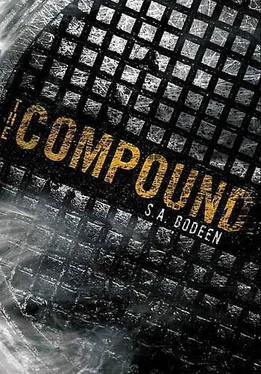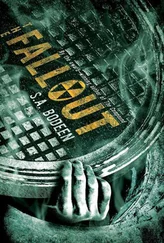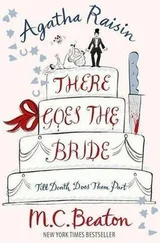I wished there were something like that for me, something more than free throws and tai chi that I could get lost in.
Lexie stopped when she noticed me and stood with one hand on her jutted-out hip, the other holding up a middle finger.
Acknowledging her greeting with a wave, I called out in Mandarin, “Si san ba.” Years ago I’d told her it was an affectionate term for a “big sister.” I’d have to find a new phrase if she ever discovered what nasty word it actually meant.
On my way once more, I passed the rock-climbing wall and media room. Next door was the music studio. Mom was playing cello, so I slipped in, sinking to the floor to listen. Mozart.
Her back was to me, and her long hair hung straight down in an even plait. My mother was the gentlest person I’d ever met. Gentle in her manner, her voice, her touch. I imagined that Clea Sheridan Yanakakis had never mustered up even an iota of bad feeling toward anyone. However, her gentle nature didn’t mean she wasn’t intense. One only had to watch her play cello for a short while to understand her depth. You don’t have to be loud or forceful to take up a lot of space in the world.
Her mother wasn’t as quiet or as gentle. Gram was part Hawaiian and half Chinese, along with an eighth each of overbearing and opinionated. We loved her, of course, even though her demeanor wasn’t anything like Mom’s. Gram was that way for a reason. As she told it, at one time she was as quiet as Mom. She married a music professor, had Mom, and was quite content. Their blissful life changed when Mom was five and her dad was killed in a car accident.
From what I knew, he left them with insufficient funds, and Gram was lonely. In addition, she thought Mom should have a male influence. Gram remarried, a man whose name I never knew.
The whole story never came my way, just bits through closed doors when I was supposed to be asleep, merged with things Eddy and Lexie heard. Putting them together, we determined the guy was a loser, demanding and scheming toward Gram, verbally abusive toward Mom. Gram finally kicked him out, even though it left her strapped for money once again. Mom came out of it quiet and sensitive, but she was not without resources. She had inherited her father’s talent for music.
I loved to listen to her, especially moments like this, when she didn’t know she had an audience. Somehow she seemed freer, more at ease. A way she never seemed around my dad.
She set her bow aside for a moment to switch sheet music.
I ducked down in case she turned around. She started again. Debussy. The music gave me goose bumps.
Even if she had been completely void of talent, she still would have taken away people’s breath with her looks. I saw it in their eyes, whenever she came to one of my school events. Oh, at first the teachers and the other parents were always disappointed when my dad didn’t show up, but I think Mom ended up being more interesting to them.
Her father’s Irish and Scottish background had combined with Gram’s ancestry, leaving Mom with dark hair, deep green eyes, and slightly Polynesian features. She’d walk in the room in her expensive clothes. Classic, elegant, never flashy, but still she’d stand out. I was proud that I had the prettiest mom.
Funny, we had all inherited Mom’s looks. Except Eddy and I had brown eyes like Gram. Even though Lexie was adopted, she had the same dark hair as Mom. None of us looked like my dad with his fair features. At least the four of us didn’t.
As for the ones in the yellow room, I couldn’t say. I’d never seen them.
Trying not to make any noise as I stood up, I left without revealing my presence. In the carpeted section of the Compound, there was only one room left: the chapel.
For as long as I could remember, Dad had been adamant about our churchgoing. During my childhood, unless we were dying or close to it, our butts were in a Methodist pew every Sunday. I knew more Bible verses than any kid had a right to. And I’m sure the church loved getting my father’s tithes. The minister certainly seemed pleased to see us arrive every Sunday.
Even in the Compound we remembered the Sabbath day and kept it holy. For the first several years, each Sunday, as well as every Christmas Eve, Dad delivered a brief sermon. We sang a few hymns as Lexie accompanied us on the organ, then Mom read some Bible verses. Those terse moments of religion were sufficient enough to feel that God was with us in the Compound. We never had any reason to doubt that He was. And then, with no explanation, Dad quit holding chapel services just like he quit working out. So I hadn’t been in there for a while.
The chapel had four rows of carved wooden pews facing a small altar with a wooden pulpit. A large gold cross hung on the wall behind the pulpit, and an organ sat off to one side. Heavy purple curtains framed the setting, and except for the small size, it looked much like the church we attended in Seattle.
It felt strange being in there alone. The room was so hushed and empty.
I stepped onto the pulpit. I’d never been up there before. Dad’s Bible was on top and I opened it. A sheet of blue lined paper fell out. In Dad’s handwriting was a list of several items regarding banking and stocks. The title was composed of two words:
TELL PHIL
Tell Phil? Why would Dad have a note to his accountant sitting in his Bible? The date was a few months ago, but the year must have been wrong. It was old, of course. Had to be. Guess he needed to be reminded of the old world as much as we did. Or maybe he’d done it on purpose, written a note to his accountant like he did in the old world a dozen times a day. Maybe he needed to pretend in order to feel a little normal once in a while, just like I did.
I put the note back where I found it.
A cursory search of the rest of the room revealed nothing. Not that I knew what I was looking for. I left.
At the end of the carpeted section of the Compound stood a double door. As I stepped through, a rush of air hit me. The ceiling was twenty-five feet over my head. The entire space went as far as I could see to my sides and front, and was open except for various walls and doors every now and then—a warehouse. There were storage areas, shelves that stretched all the way to the ceiling, and the freezers, twenty of them.
I hopped into the golf cart sitting near the door and drove, stopping randomly at one of the storage rooms. I opened the door. Of course I’d been in all of them before many times, to get toilet paper or laundry detergent. Had I ever really considered how Dad had done it all?
The Compound itself must have taken years to build, not even counting all the planning. How do you know how much toilet paper you’ll use in fifteen years? Also, how could a project like this, headed up by my dad, not make it on CNN? If I had worked on the Compound, then found out we were under attack, this is the first place I would have headed.
The answer was probably money, which my dad had loads of. Power, too. He probably made everyone sign a confidentiality agreement and paid them a lot to do so. It was sort of a constant in the old world. My father had the means to get whatever he wanted.
That was just how things were. And we all knew it.
I glanced at my watch and realized I was late for chores, so I headed to the very back of the Compound.
My main job was to run the hydroponic garden, an enormous open room where vegetables grew in troughs of water, relying on artificial sunlight to grow more rapidly than in traditional soil gardens. I’d learned about hydroponics at a local co-op we went to every Saturday on the outside. While I learned how to grow vegetables, Eddy learned about livestock and poultry. My mom learned how to bake bread, can vegetables. Part of Dad’s planning, I’d come to realize, that we all have a role in the subsistence world of the Compound.
Читать дальше












